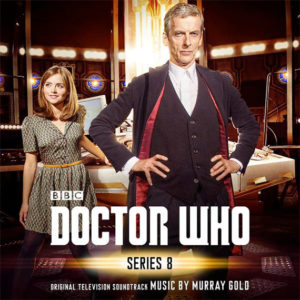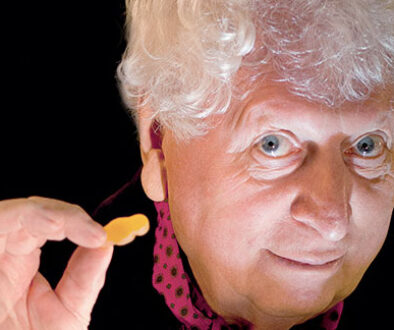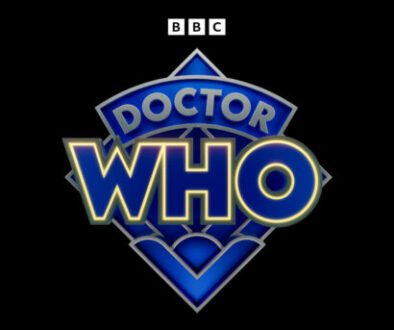Series 8 Official Soundtrack – Review
David Selby gives his verdict on the official Series 8 soundtrack release.

Still, this isn’t just a rant. It’s worth taking a brief moment out to look at why exactly some people don’t like Murray Gold’s work, and the most common criticism of him at present is his music’s habit of repetition. This doesn’t seem to be something the show has worked a way around yet. Take Kill the Moon, for instance – it’s made up of a set of brilliant tracks, but the main action theme takes a few too many rounds. And however terrific Death in Heaven’s soundtrack is, it’s hard not to notice that the last few scenes compose of reused tracks.
As highlighted well in a recent article, reuses can be just as memorable as new tracks – but it’s new tracks that build a scene’s identity. Take the illustrious “I’m an idiot” scene. It’s not just an iconic moment because it’s a defining realisation for the Doctor, but because it sees the debut of one of his defining tracks.
If there’s one solution to this, though, it’s not to remove Murray Gold altogether – it’s to let someone else give a working hand. One of television’s finest soundtracks is Sherlock, which is worked on by both David Arnold and Michael Price. And if Ben Foster has any time after his work on other shows such as Happy Valley and Our Girl, perhaps he could make a return to the Whoniverse by teaming up with Gold.
Because this brings me onto the point of what I’ve just discussed, which is that the problem of repetition is fundamentally misunderstood by most of the people who complain about it. To be clear, repetition in this case is simply an issue defined by a lack of time. Take a look at 2013, one of Gold’s most demanding years, where many tracks were reused not just for nostalgia but because other new ones were not completed in time. Then take a look at 2012, one of his least demanding years, which was comprised of a set of brand new and superlative tracks. It’s clear that Gold is capable of variety over a wide scope of musical genres, and that he’s still as original and creative as ever. It’s solely an issue of time.

This brings me on to discuss the soundtrack itself. Whatever issues have been picked up with the use of music in the series, the soundtrack is better than ever because the new tracks are some of the best we’ve ever had, and indeed the most varied. With the tone of the series itself often changing erratically, the music is able to use the tonal variety of the series for its own benefit. I’ll reference 2012 again, one of Gold’s best years, which focused on genre-specific soundtracks – some acoustic Wild West tracks for A Town Called Mercy and dark, brooding detective-y tracks for The Angels Take Manhattan.
Whilst Series Eight wisely decided to tone down its genre focus, there was still a sense of a different kind of story being told each week, and this reflects in the soundtrack. Each episode’s section feels defined and rounded; Deep Breath’s is characterised by a winding, ticking mechanical timbre; Into the Daleks’ by contemplative synth moments; Robot of Sherwood’s by completely over-the-top ‘hero’ motifs; Listen’s by tinkling keys tingling up the spine; Time Heist’s by a Hustle-esque combination of groovy guitars and snazzy jazz movements; The Caretaker’s by playful, bouncy fun; Kill the Moon’s by ominous, slow tension; Mummy on the Orient Express’ by luxuriant brass and woodwind instruments; Flatline’s by fast, urban action; and In the Forest of the Night’s by fairy-tale melodies and alterations to series-wide leitmotifs. Dark Water/Death in Heaven’s is a combination of the material for the whole series, not dissimilar to the episodes themselves.
Some of these are kinds of music we’ve seen before – the action piece, the poignant discussion piece, the hero’s entrance piece, the monster-under-the-bed piece – but they all seem to be enhanced to fit Gold’s new style. It’s clear we’ve moved on from the basic percussive days of ‘scare’-music, for instance – When I Say Run uses distorted electronic instruments to move from ear to ear (or speaker to speaker), whilst Listen combines traditional minor-key string chords with a foreboding percussive undertone. The use of synth instruments feels distinctly progressed from the classic series, as tracks such as Tell Me Am I a Good Man use old techniques combined with modern technology to make for eerie, thoughtful moments of quieter science-fiction, until they launch into a beat that moves at a nice walking-pace.
Other than a few moments of overstated brass instruments to accompany overstated scenes, Gold pays attention to criticisms and tones down his work. The result is that whilst the classics are harder to pick out, the soundtrack is able to function on a subtler, more understated level. Take Browsing, a plainly simple track laced with moments of blood-curdling uncertainty. When grander, ‘bigger’ tracks do come in, they’re something to be relished – What Seems to Be the Problem is a fine example of this, openly rejoicing in its own presence.
Unfortunately, there are some problems which aren’t attributed to Gold’s own work on the series. Firstly, royalty complications mean that Foxes’ stunning twenties-style rendition of Don’t Stop Me Now cannot be heard in its full glory. But that’s not the only track to be omitted or reduced. The vocals have been removed from both Fear and Every Christmas is Last Christmas. This might not seem like a big thing, but it was the vocal layer which gave them such a haunting texture, and they’re left sounding, I daresay, a little flat. Other tracks are just missing altogether – some favourites including the many piano variations of Fear, several less excited tracks from The Caretaker, and music from key scenes in Kill the Moon and the highly important music which accompanied pivotal moments in the finale like Danny’s death scene and the Doctor forgiving Clara. One of the most disappointing of the missing tracks for keen listeners will be the piano renditions of Clara’s theme from Deep Breath.
Let’s leave the criticisms at that, though, and look at the some of the best tracks on the soundtrack:
Every Christmas is Last Christmas
The heart-breaking string section for the Doctor and Clara’s first reunion in Last Christmas. Unlike the enchanting piano leitmotif that runs through the rest of the episode, this one is slower, sadder and when the woodwind instruments come in, strongly reminiscent of Owen’s Theme from Torchwood. With the vocals included, this would have been an obvious contender for the best track.
They Walk Among Us
Some stories can be understood by their tracks alone. This is one of them – elements of the original Cybus-Cybermen theme are incorporated into the chord sequence for the Twelfth Doctor’s theme, until Missy’s theme makes its entrance and the beats move in chromatic movement up to the cliff-hanger.
Fear
Sadder than the track itself is the removal of piano and vocals, but judging the track for what it is here it’s still one of Murray Gold’s most ingenious compositions, using dissonant layers and a surprisingly unusual chord sequence. It’s despairing with a glimmer of beauty, perfectly fitting the scenes in which it was used.
Freefall
With drum-beats broken apart by a deliberate glitching effect, this is the heroic track of the series which most people will remember, accompanying the Doctor’s descent from the nuked UNIT craft to the TARDIS. It’s one of the busier, madder tracks of the series, as if taken from the Doctor’s perspective of flying swiftly towards ground, the wind in our faces.
In the Woods
If there’s one thing that’s stood out more than ever this year, it’s Gold’s ability to grip us from the first track of the episode. This one is categorically fairy-tale, a mix of primarily piano, vocals, flute and chromatic percussion.
Something It Ate
Another case of the above, this one was especially memorable for anyone who saw Deep Breath at the cinema. Ticking and ominous, it employs a deliciously enigmatic set of chords, then quietens down in preparation for the Doctor’s arrival.
Throw Away The Key
This punky track, the best since A Machine That Makes Machines, comes to four minutes and fifteen seconds, and was used during Clara’s betrayal of the Doctor. It’s appropriately sinister and a fine example of a track which is memorable whilst staying firmly in the background of its scene.
(The Majestic Tale of) An Idiot With a Box
I mentioned this track being iconic earlier, and I stand by that assessment. It plays quite cleverly on the listener’s expectations, sounding somewhat similar to I am the Doctor, until the current Doctor’s theme takes over in full swing as he finally discovers what sort of a man he is.
Good Man (Twelve’s Theme)
Abandoning I am the Doctor was a fine decision, not because it was a bad track but because we got this instead – something new and better-suited to our morally-ambiguous Doctor and Gold’s new composition style. Starting off with only a couple of layers, Good Man builds in texture until it embraces Hans Zimmer-style orchestral sweeps. Gold has worked out a solid formula here and he knows it, playing with it for seven and a half minutes. Oh, and through the rest of the soundtrack, too.
Need to Know
It’s an unusual choice for first place, but I always like to pick something unconventional which would otherwise go under-appreciated. The underdog here is Need to Know, Danny and Clara’s (almost) final farewell track. At last we have a finale track with a bit of piano in it, until it’s drowned out heart-throbbingly by a selection of sad strings. The rest of the track moves from realisation to farewell, and I think it’s the best of the lot because it manages to balance all the emotions the episode asks it to. The finale was a demanding episode to score, but Gold pulled it off for the new tracks he created, and it’s no wonder he didn’t quite have time to score the whole episode. So when you get your hands on the soundtrack, make sure you check out Need to Know – it’s not the biggest or most iconic, but it’s undoubtedly worth a listen.
Overall, it would be a fair assessment to say that this is a selection of some of Gold’s best music to date. It is not, however, the best soundtrack release to date – even if, with a bumper-sized tracklist, it almost seems to be. When it would only take a few adjustments to get this thing up to flawless, it seems a shame that it fell short, even by the tiniest margin.
Verdict: 8/10








